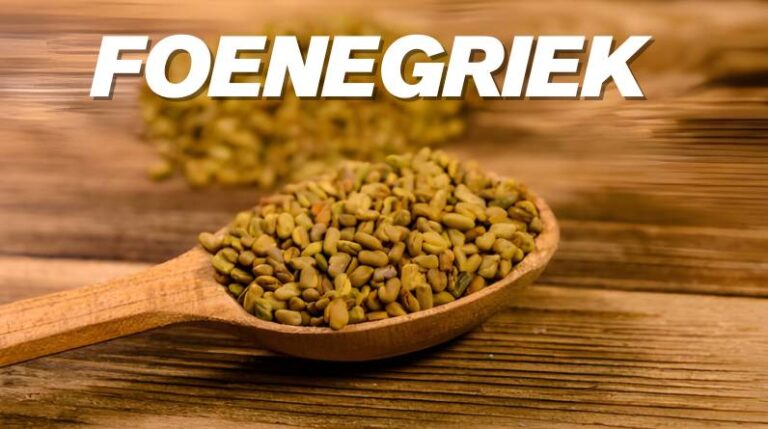In an era where we’re constantly searching for the next superfood, one ancient herb has quietly maintained its relevance for over 4,000 years. Foenegriek, scientifically known as Trigonella foenum-graecum, bridges the gap between ancestral wisdom and contemporary nutritional science. While you may recognize its alternative name—fenugreek—this golden-seeded herb deserves recognition for its remarkable versatility and evidence-based health benefits that align perfectly with modern wellness goals.
Understanding Foenegriek: More Than Just Seeds
Foenegriek belongs to the Fabaceae family, making it a cousin to familiar legumes like peas and chickpeas. This annual herb grows modestly to heights of 30-60 centimeters, producing distinctive trifoliate leaves and delicate yellow-white flowers. However, the real treasure lies in its yellow-brown seeds, which emit a distinctive maple-like aroma that becomes more pronounced when roasted.
What makes foenegriek particularly fascinating is its dual identity. In the kitchen, it serves as a flavorful spice that adds depth to curries and bread. In the wellness realm, it functions as a therapeutic agent with measurable physiological effects. This duality has made it indispensable across multiple continents for millennia.
The Historical Footprint: A Global Journey
Archaeological evidence reveals foenegriek seeds in King Tutankhamun’s tomb, suggesting ancient Egyptians valued it enough to accompany pharaohs into the after life. The herb’s Latin name, “foenum-graecum,” literally translates to “Greek hay,” referencing its widespread use in ancient Greece as both fodder and medicine.
Traditional healers across civilizations recognized foenegriek’s potential:
- Ayurvedic practitioners prescribed it to balance bodily energies and strengthen digestive fire
- Chinese medicine experts employed it for kidney support and male vitality
- Roman soldiers carried it during military campaigns as a portable nutrition source
- Middle Eastern cultures incorporated it into daily cooking and postpartum care
The Nutritional Architecture: What Makes Foenegriek Powerful
Modern nutritional analysis confirms why traditional cultures valued this herb so highly. Foenegriek seeds pack an impressive nutritional density that rivals many contemporary superfoods.
Macronutrient Breakdown
| Nutrient (per 100g) | Amount | Key Benefit |
|---|---|---|
| Calories | 323 kcal | Sustained energy |
| Protein | 23g | Muscle support, satiety |
| Dietary Fiber | 25g | Digestive health, blood sugar control |
| Iron | 33.5mg | Blood health, prevents anemia |
| Magnesium | 191mg | Muscle function, stress management |
| Manganese | 1.2mg | Antioxidant defense, bone health |
Bioactive Compounds: The Science Behind the Benefits
Beyond basic nutrition, foenegriek contains specialized plant compounds that explain its therapeutic effects:
- 4-Hydroxyisoleucine: A unique amino acid that enhances insulin sensitivity and glucose uptake
- Diosgenin: A steroidal saponin that influences hormonal pathways and supports lactation
- Trigonelline: An alkaloid with neuroprotective and anti-diabetic properties
- Galactomannan fiber: Forms a gel-like substance that slows nutrient absorption
- Flavonoids and polyphenols: Powerful antioxidants that combat cellular damage
Evidence-Based Health Benefits: What Research Actually Shows
Blood Sugar Management: A Natural Ally for Metabolic Health
Multiple clinical studies demonstrate foenegriek’s effectiveness in blood glucose regulation. A 2020 meta-analysis published in the Journal of Diabetes Research found that participants consuming 5-10 grams of foenegriek daily experienced significant reductions in fasting blood sugar levels—averaging 13-25 mg/dL decreases.
The mechanism involves three key actions: soluble fiber delays carbohydrate breakdown, 4-hydroxyisoleucine stimulates insulin secretion, and saponins improve cellular insulin sensitivity. This triple-action approach makes foenegriek particularly valuable for individuals managing type 2 diabetes or prediabetes conditions.
Practical Application: Mix one teaspoon of foenegriek powder into morning oatmeal or smoothies, or soak seeds overnight and consume the water 30 minutes before meals.
Cardiovascular Protection: Supporting Heart Health Naturally
Research indicates that regular foenegriek consumption can improve multiple cardiovascular markers simultaneously. Studies show reductions in total cholesterol by 14-18% and triglycerides by 25-30%, while maintaining or slightly increasing beneficial HDL cholesterol.
The soluble fiber binds to cholesterol molecules in the digestive tract, preventing absorption. Meanwhile, antioxidant compounds protect blood vessel walls from oxidative damage that contributes to atherosclerosis.
Lactation Support: A Science-Backed Tradition
Nursing mothers have relied on foenegriek for centuries, and modern research validates this traditional use. Clinical trials demonstrate that women consuming foenegriek supplements (typically 1,500-2,500 mg three times daily) experience milk volume increases of 64-152% within 24-72 hours.
The phytoestrogen diosgenin mimics prolactin-stimulating effects, while overall nutritional richness supports the metabolic demands of lactation. However, consultation with healthcare providers remains essential before supplementation.
Hormonal Balance: For Both Women and Men

For Women: Foenegriek’s phytoestrogens may ease menstrual discomfort and menopausal symptoms. Studies suggest reductions in hot flash frequency and intensity when consumed regularly during perimenopause.
For Men: Research indicates potential testosterone-supporting effects. A 12-week study showed men taking foenegriek extract experienced improved libido scores and free testosterone levels, though results vary individually.
Digestive Wellness: Ancient Remedy Meets Modern Science
The mucilaginous fiber in foenegriek creates a protective coating along the gastrointestinal tract, soothing inflammation and reducing acid reflux symptoms. Its prebiotic properties feed beneficial gut bacteria, supporting a balanced microbiome essential for immunity and mental health.
Common applications include:
- Relief from constipation through gentle bulk formation
- Reduction in bloating and gas when consumed with meals
- Support for inflammatory bowel conditions (under medical supervision)
- Enhanced nutrient absorption through improved gut lining health
Practical Integration: Making Foenegriek Part of Your Daily Routine
Culinary Applications: Beyond the Spice Rack
Morning Ritual: Soak one tablespoon of foenegriek seeds in 250ml water overnight. Drink the infused water on an empty stomach and chew the softened seeds. This practice supports digestion and metabolic function throughout the day.
In Cooking: Dry-roast seeds in a pan for 2-3 minutes until fragrant, then grind into curry powders or spice blends. The roasting process mellows bitterness while intensifying the nutty, maple-like flavor.
Fresh Leaves: Known as “methi” in Indian cuisine, fresh foenegriek leaves can be sautéed with garlic and added to scrambled eggs, incorporated into flatbread dough, or blended into green smoothies for a nutritional boost.
Supplementation Guidelines: Dosage and Timing
For therapeutic benefits, clinical research suggests these evidence-based dosages:
- Blood sugar support: 2.5-5 grams of powdered seeds twice daily with meals
- Cholesterol management: 5-10 grams daily, divided into two doses
- Lactation enhancement: 500-600mg capsules, three times daily
- General wellness: 1-2 teaspoons of soaked seeds daily
Always begin with smaller amounts to assess tolerance, as some individuals experience mild digestive adjustment during the first few days.
Safety Considerations: Using Foenegriek Responsibly
While generally recognized as safe, foenegriek requires awareness of potential interactions and contraindications:
Who Should Exercise Caution
- Pregnant women: High doses may stimulate uterine contractions; avoid unless specifically recommended by healthcare providers
- Diabetes medication users: Monitor blood sugar closely as foenegriek may enhance medication effects, potentially causing hypoglycemia
- Individuals on blood thinners: Foenegriek contains vitamin K and may interact with warfarin
- Those with legume allergies: Cross-reactivity may occur with peanuts, chickpeas, or soybeans
Possible Side Effects
Most people tolerate foenegriek well, but temporary effects may include:
- Mild digestive discomfort, gas, or bloating (usually resolves within 3-5 days)
- Maple syrup-like body odor due to compound sotolon (harmless but noticeable)
- Loose stools if consumed in excessive amounts
Quality Matters: Selecting Premium Foenegriek Products
Not all foenegriek products deliver equal benefits. When purchasing:
- Choose organic certification to minimize pesticide exposure
- Verify third-party testing for purity and potency verification
- Check seed appearance: uniform golden-brown color indicates proper harvesting and storage
- Smell test: fresh seeds emit a pleasant maple-like aroma; musty odors suggest degradation
- Read labels carefully: standardized extracts should specify saponin or diosgenin content percentages
The Modern Verdict: Ancient Wisdom Validated by Science
Foenegriek represents a rare convergence where traditional knowledge and contemporary research align harmoniously. Its safety profile, established through millennia of human use and modern clinical trials, combined with measurable therapeutic effects, positions it as a legitimate wellness tool rather than mere folklore.
Whether you’re seeking natural blood sugar support, exploring lactation aids, pursuing cardiovascular health, or simply adding nutrient-dense foods to your diet, foenegriek offers evidence-based benefits with minimal risk when used appropriately.
The herb’s resurgence in modern wellness circles isn’t trend-driven hype—it’s a recognition that sometimes ancient solutions address contemporary health challenges more effectively than we initially credited. As research continues uncovering additional mechanisms and applications, foenegriek’s relevance will likely expand further.
Getting Started: Your First Steps with Foenegriek
Begin conservatively with culinary applications—add roasted, ground seeds to soups or curries once weekly. Observe how your body responds before progressing to daily consumption or supplementation. Keep a simple journal noting any changes in digestion, energy, or specific health markers you’re monitoring.
Remember that foenegriek works best as part of a holistic approach to wellness. No single herb, supplement, or food can compensate for poor overall lifestyle choices. Combined with balanced nutrition, adequate sleep, stress management, and regular physical activity, foenegriek becomes a valuable supporting player in your health optimization strategy.
The golden seeds that accompanied pharaohs, sustained ancient armies, and nourished countless generations now offer modern individuals a time-tested path toward better health. Sometimes the most powerful solutions have been growing right under our noses—or in our spice cabinets—all along.


